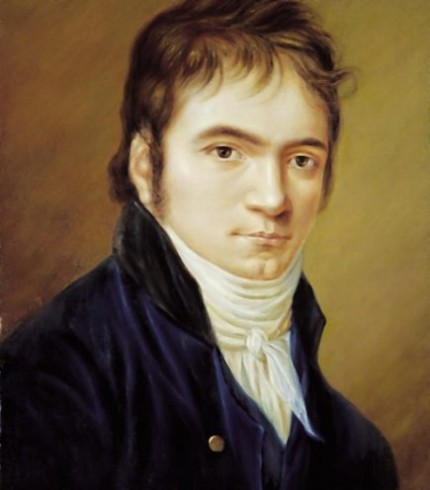Chicago Chamber Musicians explore the (mostly) lighter side of Beethoven

Violinist Joseph Genualdi, artistic director and a founding member of the Chicago Chamber Musicians, was unapologetic in his remarks to the large audience before the group’s concert Sunday night in Evanston’s Pick-Staiger Concert Hall.
Yes, the program was all Beethoven. And yes, he knew that most people envisioned the composer as an artist wracked by spiritual turmoil, brooding and struggling to express his ideas about life’s most profound issues.
There would be “virtually none of that” in the evening’s music, Genualdi announced cheerfully. CCM’s program—the Quintet for Piano and Winds, Op. 16; the String Quartet in F Major, Op. 135, the Septet, Op. 20–would reveal the composer in a more sunny frame of mind.
Which it did, though in an intensely committed and insightful performance. Beethoven is rarely frivolous, and pairing two works from his early career with the F Major String Quartet, the last piece he completed before his death at age 56, was an inspired idea. The youthful optimism and sense of possibility in the Quintet and the Septet seemed to find mature expression in the string quartet’s deeply peaceful slow movement.
Even as a young composer, Beethoven’s voice was distinctive, and the CCM players managed to find just the right balance between the Classical era’s aristocratic grace and Beethoven’s more headstrong nature.
In the quintet, pianist Meng-Chieh Liu played with liquid delicacy driven by buoyant spirits. The wind players—Michael Henoch, oboe; Larry Combs, clarinet; Dennis Michel, bassoon, and Gail Williams, horn— came and went graciously, melting in and out of the melodic texture with courtly ease. But a sense of playful zest bubbled through the final Rondo movement.
The six-movement Septet matched the winds of Combs, Michel and Williams with a quartet of string players: Genualdi, Rami Solomonow, viola; Cheng-Hou Lee, cello, and Peter Lloyd, double bass. Combs’ clarinet had a luminous glow in the Andante cantabile, providing a mellow counterpoint to the laser-like focus of Genualdi’s sweet-toned violin. William’s darkly rich horn echoed the dusky tone and fierce energy of Lee’s cello.
This was music with a twinkle in its eye. One couldn’t help but smile at Genualdi’s extravagant mini-cadenza in the final movement and the dutiful but never heavy-hearted march in the theme and variations movement.
Violinist Jasmine Lin joined Genualdi, Solomonow and Lee for a moving performance of the String Quartet, Op. 135. Beethoven was a sublime master of this form, and his later string quartets probe deeply into life’s mysteries.
Genualdi dismissed the idea that Beethoven knew his death was near as he composed this work. On Sunday night, the music’s jagged edges and jumpy melodic fragments sounded more piquant than jarring. A sense of unshakeable, hard-won joy pervaded the slow second movement. Lee’s ardent cello, the long-held, patient tones of Solomonow’s viola created a sense of expansive peace. For the moment at least, Beethoven’s storms had subsided. It was a pleasure to bask in the unexpected glow.
Posted in Performances






Posted Feb 15, 2011 at 2:32 pm by Bob Knight
An inspiring concert!